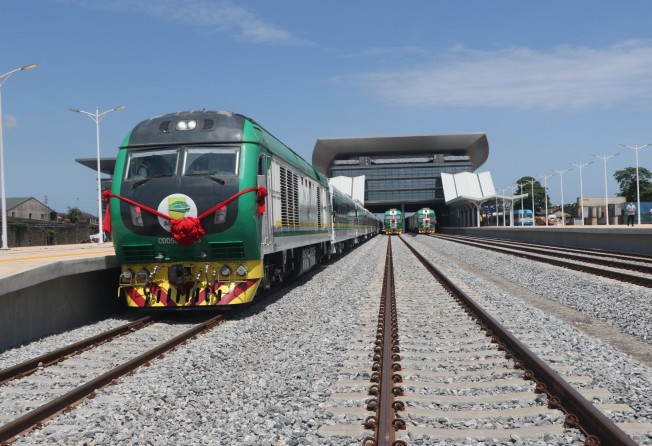
02:02
China is building a new Egyptian capital in the desert under its Belt and Road Initiative

China has long recognised the investment potential of Africa, deepening its relationship with the continent in the past two decades. By establishing itself as a partner for Africa on trade and as a substantial lender and investor, China has supported a wide range of important projects.
The Centre for Global Development recently found that throughout Africa’s infrastructure projects, China’s policy and development banks’ lending reached about US$23 billion between 2007 and 2020.
It is therefore not surprising that Chinese banks now make up about a fifth of all lending to Africa. Most of this is concentrated in resource-rich countries including Angola, Djibouti, Ethiopia, Kenya and Zambia, with annual lending peaking at US$29.5 billion in 2016.
Since the Covid-19 pandemic, however, China’s lending to Africa has slowed significantly, falling 78 per cent in 2020 to a 16-year low. This change is largely a result of the impact of the pandemic in both China and Africa, with China having much less appetite for risk. This is a cause for concern, though the effects of Covid-19 appear to be waning.
China’s “dynamic zero-Covid” policy has kept the country’s borders relatively shut since the start of the pandemic in early 2020. This means the government has directed its focus towards internal policies and stabilising domestic economic growth rather than any external strategies.
The impact of Covid-19 in Africa and China was on multiple levels. On the one hand, the pandemic eliminated government and business travel to and from China, which was an essential part of brokering new financial agreements and funding projects in the region. Compared to 2018 and 2019 which saw 66 and 32 loan agreements signed, there were only 11 new loan agreements in 2020.
This decline in loans was further exacerbated by Chinese banks adjusting their lending practices in the wake of Covid-19. With the continuing economic fallout of the pandemic – including inflation, rising interest rates and the government deploying more funding to Covid-19 – many Chinese lenders are taking an inward-facing approach to investment strategy.
They are moving away from their previous high-volume, high-risk paradigm and shifting into lending practices that are smaller and more manageable. This means there are fewer deals being signed between Africa and China as funding, especially in the infrastructure and energy space, comes nearly to a halt.
However, there is reason to believe this won’t be an ongoing trend but rather will be short-lived. While on the surface, shifting Chinese lending patterns are a problem for Africa, these factors should not be cause for immediate concern as the bottlenecks in investment are short-term shocks and Africa also has the ability to bring back capital inflows.
Chinese lenders are often risk-adverse. Africa must instil a level of confidence through good governance and stability, and we have already seen that Africa is making long and fast strides to gain investor trust.
Across Africa, technology, artificial intelligence and automation are driving a digital revolution that is enhancing efficiency and competition as well as transparency and governance, which are crucial elements to increasing investor confidence. Africa is also focusing on strengthening its capital markets by ensuring high-quality, timely and trustworthy data which can help investors make sound decisions and protect economies from volatility.
China’s General Administration of Customs recently noted that bilateral trade between China and Africa amounted to US$254.3 million in 2021, an increase of 35.3 per cent from 2020. According to government data, trade between the two regions increased by 23 per cent to US$64.8 million in the first quarter of 2022.
As trade and lending pick back up for African countries with debt relief and restructuring discussions, China – like other lenders including Eurobond holders, Western banks and development financial institutions – needs to focus on existing projects under construction rather than on new greenfield projects.
Because of the ongoing relationship between China and Africa over the past few decades, there is a huge number of incentives for China to continue its involvement in the continent.
While Chinese lending to Africa is still down from pre-pandemic levels, Beijing has reaffirmed its long-term commitment to Africa by taking on a more active role in African stability. It hosted the Horn of Africa Peace Conference in Addis Ababa at the end of June, and also said it would forgive 23 loans to 17 African countries.
In the grand scheme of things, Covid-19 is a short- to medium-term problem which is still being felt heavily in China. As borders continue to open, however, the negative impact the pandemic has had in the past couple of years is likely to subside and African investment is expected to recover to pre-pandemic levels.
Kai Zhu is head of the China-Africa Corridor at Absa Corporate and Investment Bank